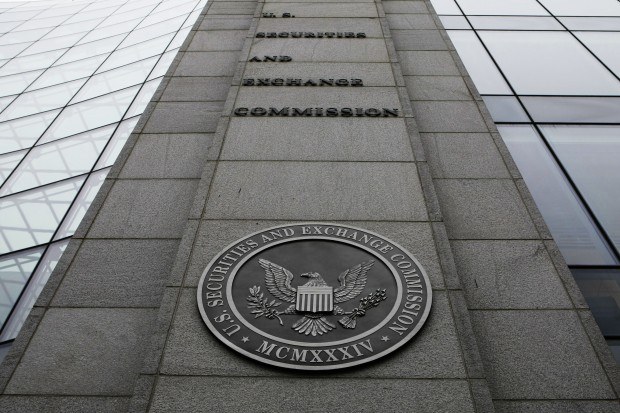The U.S. Securities and Exchange Commission should focus its new policy of seeking admissions of wrongdoing on cases such as those involving bad actors who have a high risk of being repeat offenders, SEC Republican Commissioner Daniel Gallagher said.
In an interview with Reuters this week, Gallagher for the first time publicly spoke about the changes SEC Chair Mary Jo White is making to the agency’s settlement policy and said the shift overall seems like a good step.
In typical SEC settlements, the agency has historically let defendants say they neither admit nor deny the allegations.
Last week, however, White said the SEC will start trying to extract admissions of wrongdoing in selective cases where there is egregious intentional misconduct, widespread harm to investors or attempts to obstruct the SEC’s investigation.
“In cases where there is a really bad actor and … for whatever reasons, we are concerned they will get back into the public sphere, then having them admit fault I think that is good thing for the investing public,” Gallagher told Reuters.
Gallagher said, though, that the SEC must be cautious about which defendants it applies the new policy to. The SEC must also take into account how its workload might be impacted.
“I worry, to the extent we are going after entities that have a lot of civil exposure, that we will end up in court and tying up our resources,” he said.
SEC settlements have come under scrutiny from judges and some lawmakers in the wake of the 2007-2009 financial crisis.
Gallagher believes the actions of U.S. District Judge Jed Rakoff, who has denied some SEC settlements on the grounds they were too weak, likely helped prod the SEC to revisit the issue.
The federal appeals court in New York is currently considering an appeal by the SEC and Citigroup Inc. of Rakoff’s November 2011 ruling striking down the bank’s $285 million settlement of charges that it misled investors about a collateralized debt obligation. Rakoff said he could not tell if the settlement was fair because Citigroup was not required to address the charges.
Commissioners Consulted
White, who joined the SEC in April, pledged to review the settlement policy as part of a broader look at the agency’s enforcement division. The decision was first announced by the SEC’s two enforcement chiefs, Andrew Ceresney and George Canellos, in an internal e-mail.
However, prior to making the change, the agency’s other four commissioners were all consulted. Having buy-in from commissioners is crucial because a majority of the commission is needed to approve a settlement.
SEC Commissioner Luis Aguilar, a Democrat who in 2011 called for a review of the neither admit nor deny settlement policy, supports the shift.
“I was particularly glad to see that the new settlement policy includes situations where the defendant engaged in unlawful obstruction of our investigative process,” Aguilar said in an interview with Reuters. “That was a suggestion I had made to the Chair.”
Defense lawyers are still wary about how the SEC will decide which cases to pick when deploying the new policy and whether it might make it difficult for their clients to settle.
They have said admitting guilt could open the door to private litigation or encourage federal criminal charges by the Justice Department or litigation from state attorneys general.
Aguilar Wants Post-Settlement Monitoring
White has said she does not expect the agency to apply the policy broadly, meaning the neither admit nor deny policy will still be used most of the time.
Because of that, Aguilar said he has asked the agency’s enforcement staff to “closely monitor statements by defendants so that any post-settlement denials are dealt with appropriately.”
Aguilar was referring to the typical language in settlements that gives the SEC the authority to ask a court to vacate a final judgment and litigate the matter if a defendant breaches the terms of the agreement with the SEC.
That language generally prohibits defendants from later denying the allegations to the press or in the public sphere.
However, defendants are still allowed to take a position on the allegations in other contexts, including sworn testimony or litigation not involving the SEC, such as private shareholder lawsuits.





















 Winter Storm Fern to Cost $4B to $6.7B in Insured Losses: KCC, Verisk
Winter Storm Fern to Cost $4B to $6.7B in Insured Losses: KCC, Verisk  Nearly 26.2M Workers Are Expected to Miss Work on Super Bowl Monday
Nearly 26.2M Workers Are Expected to Miss Work on Super Bowl Monday  What Analysts Are Saying About the 2026 P/C Insurance Market
What Analysts Are Saying About the 2026 P/C Insurance Market  Lessons From 25 Years Leading Accident & Health at Crum & Forster
Lessons From 25 Years Leading Accident & Health at Crum & Forster 